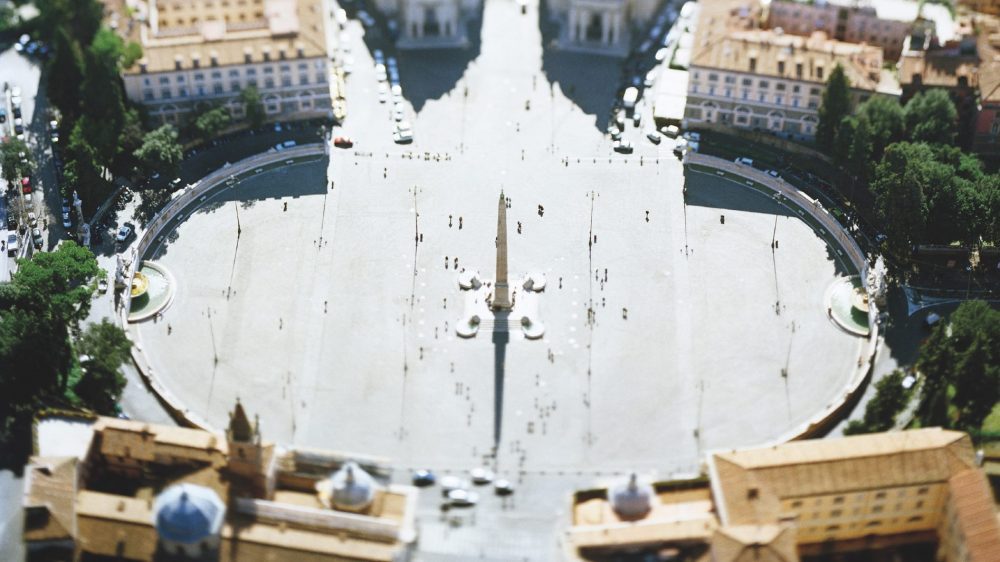-
- contrast
-
- A-
- A
- A+

Od-Nowa Huta updates the views on Nowa Huta, taking into account its past and evolution, which it has experienced so far, and the one that is yet to come. It presents Nowa Huta against the backdrop of a broader experience of modernity, both engaged by authoritarian regimes, but also in the context of post-industrial evolution, which has largely become an experience shared by many European cities over the past 30 years, for which Nowa Huta works as an mirror. Od-Nowa Huta analyzes European paths by discussing the district of Krakow against the backdrop of pre-war Rome or post-industrial Bilbao. Re-Nowa Huta follows the scenarios of gentrification that have irrevocably marked the centers of many European cities, without sparing Krakow, at the same time anticipating potential paths of the further evolution of the district in search of its new economic, social and artistic functions.
Contrary to the top-down scenarios that determined the creation of the district, Od-Nowa Huta reverses the perspective, especially taking into account the social one.
What does Nowa Huta community experience today and how can the common voice of the inhabitants determine the development and evolution of the city? On 25th of September, two days of expert panels will find their continuation in connected cultural activities.
Experts from 6 countries that make up the EUNIC cluster in Krakow will lead the discussions, sharing the experiences of their home countries that can be applied in Nowa Huta.
23.09.2021
17:00-18:45
“From Utopia to reality”
speakers:
Géry Leloutre
Georgios Maïllis
Georgi Stanishev
moderator – Piotr Lewicki
The first discussion, inaugurating a series of debates dedicated to cities similar to Nowa Huta – planned from above, develops a reflection on their ideological, cultural and historical leaven, as well as contemporary forms into which they are evolving. How did their visual culture change and adapt to the new context in these conditions? Dunaújvaros, Poruba, Dimitrovgrad, New Belgrade, and New Zagreb were created in the spirit of socialist realism, while on the wave of capitalist industrialization completely new cities or districts were built, as in the case of Charleroi. After the economic and social upheavals, these various places now require a new political commitment that connects the public and private sectors. What will these old-new cities look like in the future?
18:45-20:30
“Modernismo architettonico del Novecento”
speakers:
Luca Palmarini
Luigi Valerio
moderator – Ugo Rufino
Modernist architecture in the first half of the Twentieth Century accelerated the process of renovation of European cities, “soaring” in some cases, while creating a process of urbanisation with a new residential and planning perspective in others. In Italy, we saw the establishment of new neighbourhoods such as EUR and the creation of urban patterns with architectural structures absolutely innovative from the point of view of liveability and technological progress. It can be argued that such changes in the process of urbanization derive from a new State-Form of authoritarian states emerging all over Europe, like in Italy, Germany and the Soviet Union, which are somehow competing with each other for a new concept of city and social gathering, like in the case of the city of Nowa Huta in Poland. The Italian Institute of Culture in Krakow is hosting a roundtable led by architect Luigi Valerio, Professor Luca Palmarini, who is presenting his book on Nowa Huta, and the Director of the Italian Institute of Culture Ugo Rufino.
Discussions will be translated into Polish.
Number of participants is limited, please book your place at rezerwacja@domutopii.pl
Tables of debate to be held on September 23-24th at the Utopia Home – International Empathy Centre, initiated and implemented jointly by the Instituto Cervantes, Institut français de Pologne, Istituto Italiano di Cultura, Bureau Wallonie-Bruxelles à Varsovie, Goethe-Institut, Österreichisches Generalkonsulat Krakau with the strategic support of EUNIC, will be preceded by an exhibition organized by Institut français de Pologne à Cracovie and Istituto Italiano di Cultura Cracovia (available for public from September 7th). Pandemic panoramas of depopulated city squares in Italian cities, hiding their actual life behind the walls, will be juxtaposed with the historical photographs presenting the crowds filling the streets of Nowa Huta in a gesture of social solidarity.
assisting events:
exhibition “In Front of and Behind the Curtain – Scenarios of Social Solidarity”: Utopia Home – International Empathy Centre (23.09 – 3.10.2021)
“Concert of Wishes” spectacle by Yana Ross with Danuta Stenka – Łaźnia Nowa Theater 25.09.2021 18.00 / 20.30
Organizers Od-Nowa Huta: Instituto Cervantes, Institut français de Pologne, Istituto Italiano di Cultura, Bureau Wallonie-Bruxelles à Varsovie, Goethe-Institut, Österreichisches Generalkonsulat Krakau przy strategicznym wsparciu EUNIC.
EUNIC (The European Union National Institutes for Culture) is a Brussels based network of European national cultural institutes and other public organizations engaged in cultural activities outside their country aiming to promote European culture and languages. EUNIC brings together organizations from all 27 Member States of the European Union. By pooling the resources and expertise of its members, conducts work in common areas of interest, supporting the definition and implementation of a European cultural policy for culture in the EU and beyond.
cooperation: Łaźnia Nowa Theatre / Utopia Home – International Empathy Centre